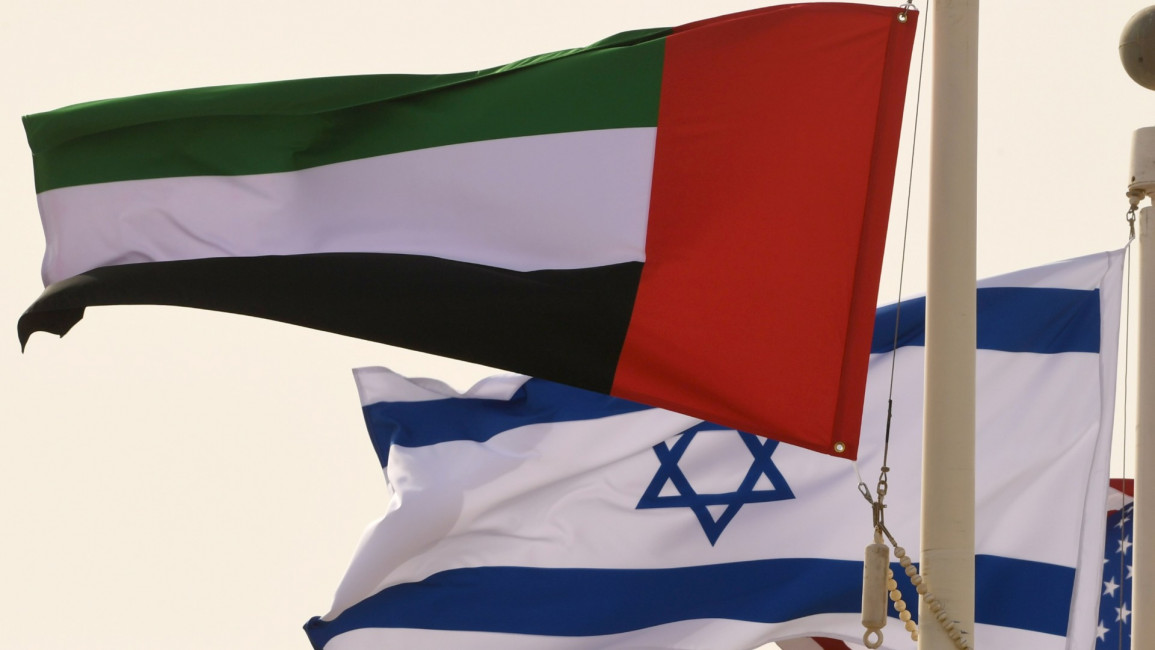Delegation from illegal Israeli settlements meet with Dubai businessmen
The settler delegation travelled to Dubai a few days ago and held a series of business meetings with Emirati entrepreneurs, according to Channel 20 and the Israeli newspaper Yediot Aharonot.
The delegation, consisting of managers of factories, companies, and businessmen from the industrial zones of the settlement council, held meetings and meetings with around 20 Emirati businessmen and owners of companies specialising in the fields of agriculture, pesticides and plastics, and managers of large investment companies, Hebrew 20 reported.
The two sides discussed bilateral cooperation, especially in the fields of agricultural crops and water desalination.
Read also: Beyond the glitz and glam of the UAE lies a sinister cyber surveillance state
"There is an opportunity for both sides to benefit from the cooperation that could result from normalisation," Yediot Aharonot quoted the head of the delegation, Yossi Dagan, as saying.
"It is an exciting moment for all of us, I would not have believed that I would witness this thing in my life."
The settler business meeting is the first of its kind since normalisation. Israeli products have entered Emirati shelves since normalisation, including wine from the occupied Golan Heights.
The international community, including the UAE, does not recognise Israel's 1981 annexation of the Golan Heights, just as the international community refuses to recognise Israel's 1967 occupation of the West Bank.
Occupation and police state
In August, US President Donald Trump announced the UAE had become the third Arab country and first Gulf Arab state to normalise ties with Israel, with Bahrain and Sudan following suit.
Israeli Prime Minister Benjamin Netanyahu said his country is in talks with other Arab and Muslim leaders about normalising relations.
While the UAE and other Arab states have rushed to embrace Israel, opinion among Arab populations remains strongly against normalisation.
A poll published Arab Center for Research and Policy Studies (ACRPS) in early October showed that an overwhelming majority of 88 percent of Arabs reject normalisation with Israel.
Israel, which for decades has claimed to be "the only democracy in the Middle East", has supplied spyware technology to the UAE.
Rights groups have repeatedly warned on the heightened internet restrictions in the UAE which contribute to the crackdown on freedom of speech and civil online activism.
Ambiguous anti-terror and cybercrime laws have been used to target critics of the regime and dissidents. Websites critical of the regime's human rights record have been blocked in the country.
Follow us on Facebook, Twitter and Instagram to stay connected


![President Pezeshkian has denounced Israel's attacks on Lebanon [Getty]](/sites/default/files/styles/image_684x385/public/2173482924.jpeg?h=a5f2f23a&itok=q3evVtko)



 Follow the Middle East's top stories in English at The New Arab on Google News
Follow the Middle East's top stories in English at The New Arab on Google News


